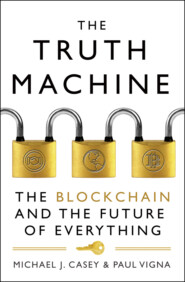скачать книгу бесплатно
Think of how disintermediation has already transformed the global economy in the earlier Internet era and you get a sense of how sweeping this next phase could be. Consider, for example, how the outsourcing of technical advice, Web design, and even accounting services disrupted jobs in Western countries and fostered economic growth in places like Bangalore, India. Or think of how Craigslist, which allowed people to post ads for anything at zero cost on a site that had global reach, completely decimated the classified ads business and, ultimately, shuttered hundreds of local newspapers. If blockchain technology lives up to its promise to decentralize and disintermediate so much of our economy, these prior disruptions may seem minuscule by comparison.
As we’ll discuss in the pages ahead, there’s still much work to do to get this technology ready for prime time. In fact, it may never be scalable to the size needed to make a difference. Nonetheless, people across every industry are coming to recognize its potential power. They’re starting to realize that resolving trust barriers could allow all of us to do more with what we have: to deploy our assets, our ideas, our creativity into whatever productive endeavor takes our fancy. If I can trust another person’s claims—about their educational credentials, for example, or their assets, or their professional reputation—because they’ve been objectively verified by a decentralized system, then I can go into direct business with them. I can give them a job. I can collaborate on a joint venture. I can share sensitive business information with them. All without having to rely on middlemen like lawyers, escrow agents, and others who add costs and inefficiencies to our exchanges. These kinds of agreements are the stuff of economic growth. They fuel innovation and prosperity. Any technology that reduces friction and makes such collaborations happen should benefit everybody, in other words.
Still, there’s nothing to say this will assuredly play out in a way that’s best for the world. We’ve seen how the Internet was co-opted by corporations and how that centralization has caused problems—from creating big siloes of personal data for shady hackers to steal to incentivizing disinformation campaigns that distort our democracy. So, it’s crucial that we not let the people with the greatest capacity to influence this technology shape it to suit only their narrow interests. As with the early days of the Internet, there is much work to be done to make this technology sufficiently safe, scalable, and attendant to everyone’s privacy concerns.
Blockchains are a social technology, a new blueprint for how to govern communities, whether we’re talking about frightened refugees in a desolate Jordanian outpost or an interbank market in which the world’s biggest financial institutions exchange trillions of dollars daily. By definition, getting blockchain technology right requires input from all sectors of society. You can treat that as a clarion call to take an interest, to get involved.
Вы ознакомились с фрагментом книги.
Для бесплатного чтения открыта только часть текста.
Приобретайте полный текст книги у нашего партнера:
